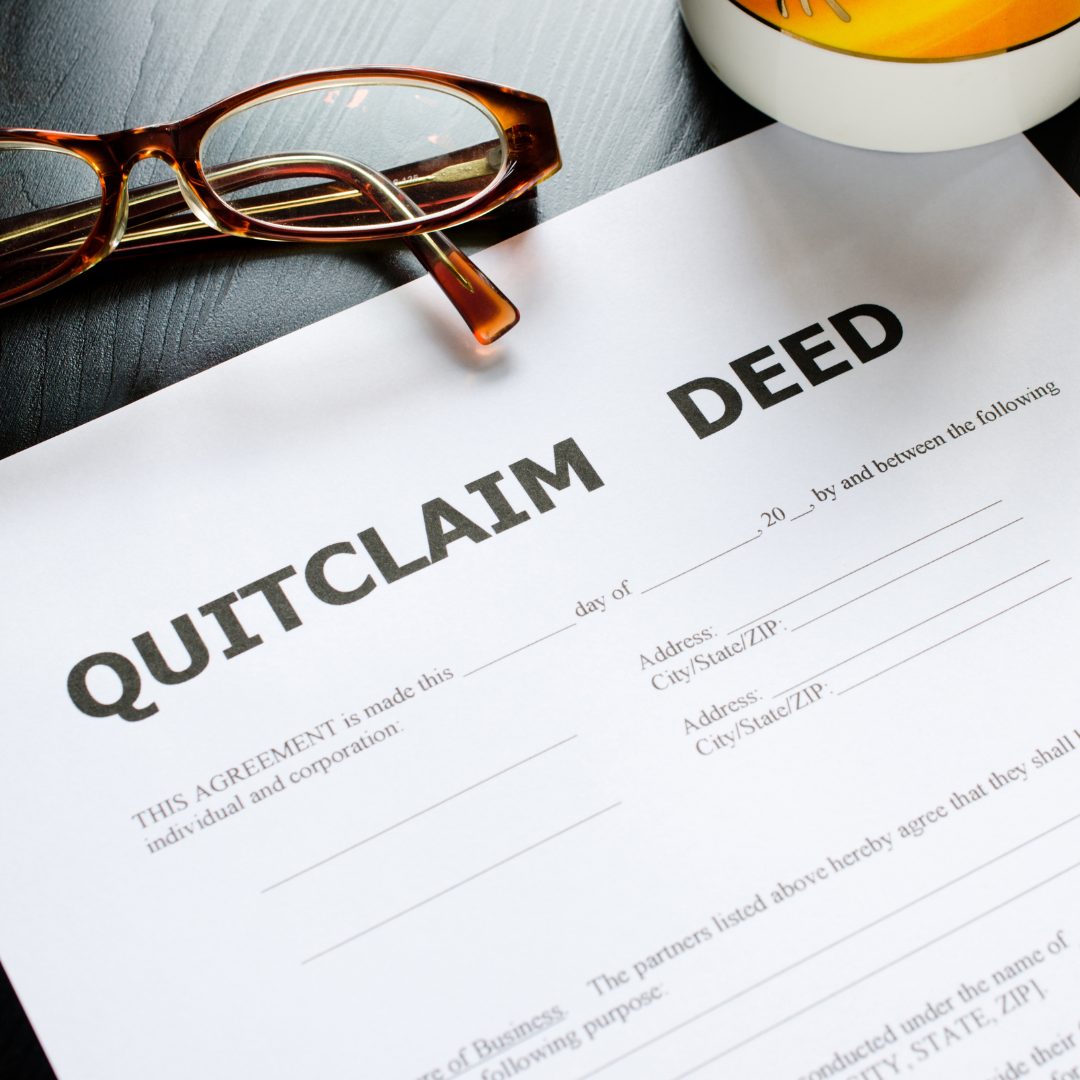After months of looking, you’ve finally located the home you prefer. One of the last stages in the home-buying process is ordering a title search and having the seller sign the deed to the property at closing. The ownership of property is transferred legally after this stage. Although quitclaim deeds are occasionally used by house sellers, warranty deeds are more frequently used in these transactions.
So what exactly is a quitclaim deed?
WHAT IS A PROPERTY/REAL ESTATE DEED?
Property deeds and real estate deeds are tangible, official real estate documents that are used in real estate transactions. They formally transfer ownership (interest) in real estate from the present seller/owner (the grantor) to the subsequent buyer/owner (the grantee). A deed is a document that typically names the grantor and grantee parties and gives a written legal description of the property and its borders. It is often generated by a mortgage business, title firm, or real estate lawyer.
For a deed to be valid and entered into the public record, it must be in written, properly drafted, and signed by the grantor. Depending on the specifics of the property transfer, numerous types of deeds are used. The title firm that the grantee hires to handle the closing on their acquisition of real estate performs a title report.
The seller’s good title to the property is confirmed by this report. The business then has the option of insuring the grantee’s ownership of the property. The grantee is protected by insurance from some claims or disputes that could develop over title, physical possession, or a financial interest in the property. These insurance documents are normally approved by an underwriter.
WHAT DOES A DEED DO?
An ownership interest in a property is transferred by a deed. Different levels of protection are provided by deeds for both the grantor and the grantee. Any grantee is best secured when they get title insurance, regardless of the kind of deed. This is in case something later calls into doubt the grantor’s authority to transfer title.
WHAT IS A QUITCLAIM DEED?
A quitclaim deed is a legal instrument used to transfer ownership of real estate. It is also also referred to as a release or non-warranty deed. Quitclaim deeds may sometimes be referred to as “quick claim” or “quit claim” deeds inadvertently. A quitclaim deed communicates a grantor’s interest in transferring property without making any guarantees or assurances regarding the property’s ownership or financial responsibility. When there is no consideration given for the property interest or less than fair market value, this deed—which provides no protection to the grantee—is frequently utilized.
However, the deed’s efficacy is dependent on the grantor’s title. If a grantor still has a financial obligation on the property, grantees should consult with a lawyer to determine who is liable for paying it and if the property can be foreclosed on if the debt is not met. Similarly, quitclaim deeds only transfer property that the grantor owns. If the grantor does not possess title to the property, the quitclaim deed is null and void.
ADD OR REMOVE PERSONS FROM A PROPERTY.
Quitclaim deeds are used to transfer property ownership. In some instances, such as a divorce or a property inheritance, an individual or a trust transfers 100% ownership from one person to another. They are often used to add an extra owner, such as when a spouse is added after marriage.
These deeds are used when the seller has a disputed stake in the property. In a divorce, for example, one spouse may pass their equitable interest to the other by quitclaim. Another case in point is when a contemporary survey portrays the land differently from the legal title.
A quitclaim deed is used in this circumstance to release the land specified in the survey. Though favorable to sellers, cautious buyers should insist on a limited warranty deed in order to maintain responsibility against the seller; title firms seldom cover a transfer that merely includes a quitclaim deed.
EXCEPTIONS TO THE QUITCLAIM DEED
Many states have distinct laws and customs that govern how and when to utilize quitclaim documents. They are not utilized in some states because of unique underwriting and insurance regulations. In other states, insurance firms insure property titles obtained from quitclaim deeds.
The use of a quitclaim deed does not exclude a transaction from transfer tax. Instead, the state taxing authority considers the type of transaction and whether or not consideration was exchanged for the deed (money or another valued item).
Quitclaim deeds used to give property, as well as quitclaim deeds between family members when minimal compensation was received, are often free from transfer tax. A quitclaim deed is another frequent exemption that helps to release property held as security for a loan or to remove another lien against the property.
When two or more property owners want to modify the way they hold title to real estate, they can do so. Owners who possess property as tenants in common, for example, may quitclaim their land from themselves to themselves as joint tenants with rights of survivorship. This form of transfer is likewise free from transfer tax.
Got questions about how home buying and selling works? Feel free to contact me for your questions and concerns.

 Facebook
Facebook
 X
X
 Pinterest
Pinterest
 Copy Link
Copy Link

